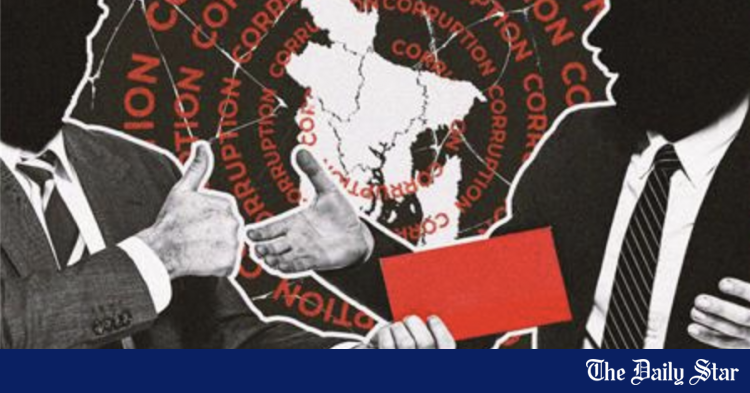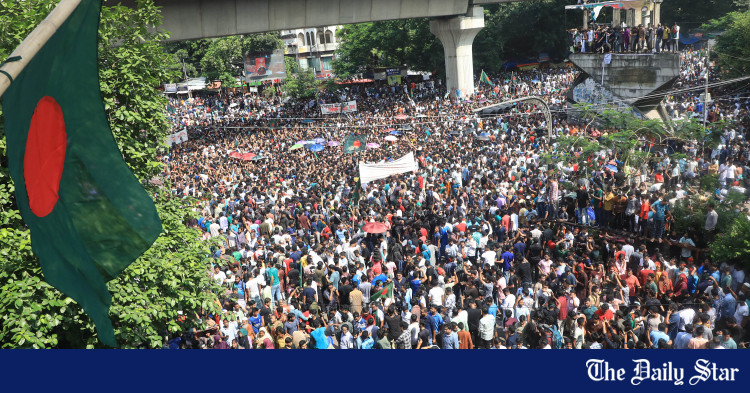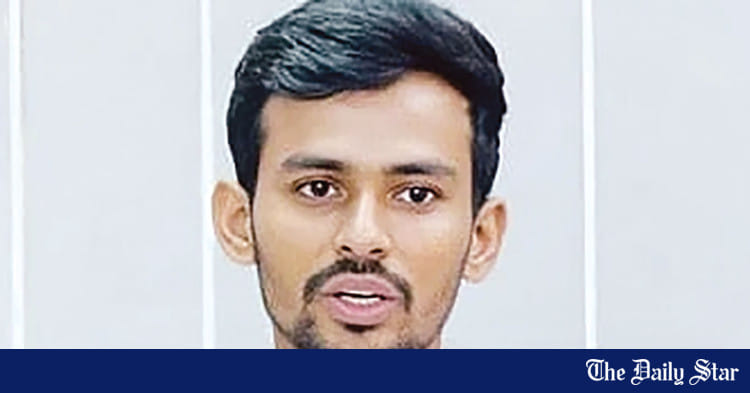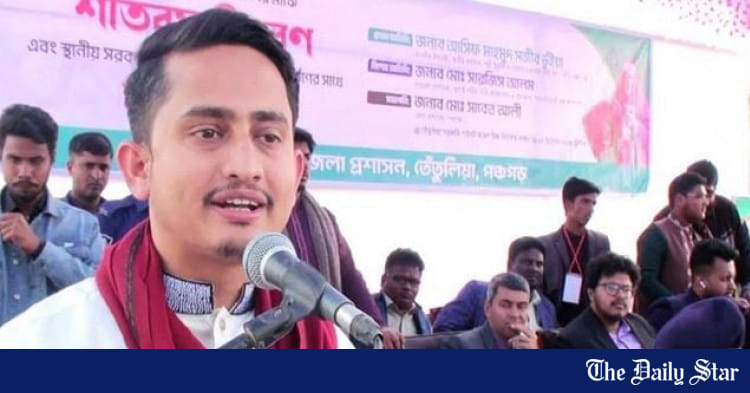Revulationary potential of July uprising
by Zobaer Al Mahmud 26 December, 2024, 00:00
New Age/Sony Ramany
The revolutionary task of the ‘revolutionary potential’ of the 2024 mass uprising is to dismantle Bangladesh’s authoritarian state structure and establish a new political framework. This is undoubtedly a revolutionary aspiration, one that not only enjoys public support but has also seen people shed blood to achieve it. Channelling this revolutionary aspiration into concrete political transformation is the revolutionary task at hand, requiring the acceleration of the second phase of the mass uprising. It is crucial to note here that revolutions do not always have to be socialist or religious; they can also be liberal democratic revolutions. In Bangladesh, most notions of revolution have been derived from China or Russia, and the literature on revolution has traditionally been dominated by leftists. Consequently, the democratic revolution of 1776 in the United States — which predated even the French Revolution of 1789 — has not been widely discussed or acknowledged within Bangladesh’s intellectual circles. The 2024 mass uprising in Bangladesh embodies the principles of both the French and American democratic revolutions while also being a unique Bangladeshi democratic revolution with its own distinct features, momentum, and aspirations. This mass movement was a rebellion against a fascist/authoritarian regime rooted in the colonial state structure inherited from British and Pakistani rulers, as well as the pervasive authoritarianism of the past decade.
However, political parties appear to be seeking solutions to the country’s political crisis within the framework of the existing constitution. This suggests that these parties are entering into compromises with the country’s deep state, regional powers, and global superpowers, aiming to preserve the current constitution, state structure, and system. By arguing that ‘the president cannot be removed in the name of constitutional continuity, as it would create a constitutional vacuum,’ they are effectively obstructing the revolutionary transformation of the constitution. Instead, they are steering the country towards maintaining the old ‘constitutional authoritarianism.’ Such a path will not resolve the crisis; rather, it will deepen it further.
It is challenging to explain this complex issue in such a limited space, but let us attempt to discuss it briefly. The constitution of Bangladesh lacks the concept of individual sovereignty, which essentially means the absence of people’s sovereignty. As such, this constitution cannot be considered genuinely democratic. The core principle of bourgeois liberal democracy is that the state and government should restructure all administrative and institutional frameworks to protect individual freedom, rights, and dignity — in other words, popular sovereignty should be the central focus. For instance, the French and American constitutions are primarily centred on individual sovereignty or people’s sovereignty, ensuring that the state structure prioritises the protection of human dignity and rights. Consequently, no laws contrary to these rights can be enacted. In contrast, since 1972, Bangladesh has operated under a system of ‘constitutional authoritarianism,’ where sovereignty is vested in the parliament or the state/government itself, and the primary objective of the constitution is to ensure state security and governmental stability. Although the current constitution acknowledges fundamental rights such as freedom of expression and the right to assembly, the power structure it proposes lacks mechanisms to protect these rights. Instead, it grants sovereignty to the parliament, allowing for the enactment of laws that could suppress fundamental rights. Therefore, a revolutionary transformation of this constitution is necessary to prioritise the protection of citizens’ fundamental rights, making this the primary duty of the state, government, and political parties. Based on this principle, the state structure, government, and power dynamics need to be fundamentally restructured.
The anti-discrimination student movement has recently raised a significant demand: to issue a ‘Proclamation of the Republic’ or declare Bangladesh’s Second Republic, in the spirit of the July Revolution and mass uprising. The importance of this demand lies in establishing people’s sovereignty as the cornerstone of the ‘Proclamation of the Republic’ and embedding it into the constitution. Such revolutionary reforms and the drafting of a new democratic constitution must be undertaken by an elected constitutional assembly. However, many intellectuals and political parties, including the BNP, are now arguing that the existing parliament should carry out constitutional reforms. This is problematic because the parliament itself is formed based on the existing constitution, and granting it the authority to amend the constitution effectively makes the parliament sovereign, not the people. History has shown that political parties in Bangladesh, upon being elected, have enacted repressive laws detrimental to fundamental rights, all within the framework of the constitution. Therefore, it is difficult to trust that any elected party or national government will initiate democratic constitutional transformation. Such transformation must occur during this interim period following the mass uprising, through a constitutional assembly.
Just four months after the mass uprising, the emergence of politics centred around ‘constitutional continuity’ has led many to believe that the deep state, controlled by Bangladeshi corporate oligarchs, along with major political parties like the BNP, has now allied with foreign powers to hijack the student-led people’s revolution. It is evident that agency politics is currently in control, shaping and influencing the course of political developments. The deep state, political parties, and global powers perceive this mass uprising merely as a regime change and are solely focused on a transfer of power, which stands as a major obstacle to genuine democratic transformation. A truly democratic and independent Bangladesh — built on the foundation of strong democratic institutions and a state structure that upholds the sovereignty of its people — runs counter to the interests of global and regional powers as well as domestic oligarchs. This is precisely why efforts are underway to hijack the 2024 mass uprising, just as was done with the 1990 movement.
The people of this country supposedly do not understand reform; they only understand voting. This is what BNP secretary general Mirza Fakhrul Islam has said. However, during and after the mass uprising, the people of this country wrote about reform and state reconstruction on walls across the nation. Mirza Fakhrul and others like him can still go and see those writings. The politicians should not underestimate the people who stood against the fascist system with their blood; they are not ignorant of reform or focused solely on voting. The people of this country want a new structure and also want voting. In fact, they now understand that the vote for a constitutional assembly is needed first, and then parliamentary elections can follow. Politicians are choking the revolutionary potential of a promising mass uprising, and now they are even desperate to block the reforms that should have been done in normal times. Why? Our demand is clear: first, reform and reconstruct the state, and then hold elections.
In the capitalist global order, the true sovereignty of a marginal and weak state like Bangladesh poses a dual challenge: it obstructs the economic and political dominance of global and regional powers, and it can also work against the plundering interests of domestic corporate oligarchs. Furthermore, a participatory state structure involving the people can resist the handover of key sectors such as services and industries to multinational corporations, thereby accelerating the development of national economic capacity. As a result, the revolutionary transformation of Bangladesh’s state structure, along with its administrative and legal frameworks — currently tailored to facilitate the unregulated flow of capital and a plunder- and exploitation-based economy — is not supported by the country’s deep state or foreign powers. Since Bangladesh’s political parties represent the same class interests, they also favour the continuation of this system. The stance of these political parties, advocating for ‘constitutional continuity’ by avoiding the removal of the president and opposing any qualitative change to the constitution, reflects a consensus among them to govern within the existing state, legal, and administrative power structures. This consensus ensures that the deep state can continue its mafia-like control and plunder while foreign powers preserve their geopolitical interests.
Simultaneously, established political parties can maintain their governance without undergoing internal democratic reforms. This alignment of interests among the deep state, political parties, and foreign powers to protect the existing system is effectively branded as ‘constitutional continuity.’ Such continuity politics, which was evident after the 1990 mass uprising, is now reappearing. Consequently, the revolutionary aspirations of the 2024 mass uprising — aimed at fundamentally transforming the existing system to establish a truly democratic Bangladesh — are once again under threat.
The responsibility now falls on the anti-discrimination student movement and the country’s genuine democratic forces. It is crucial for them to demonstrate political maturity and strategise the democratisation of the current constitution and state structure. Student leaders must work to raise public awareness so that people focus not merely on power transitions through elections but on the necessity of dismantling undemocratic and ‘fascist’ structures. Additionally, strengthening solidarity with the working-class population is imperative. Without this second phase of the mass uprising, there is little hope. Failure to achieve this will likely result in us becoming trapped once again in ‘parliamentary authoritarianism’ or ‘constitutional fascism,’ which would only serve as a nominal form of democracy.
If the anti-discrimination student movement retreats under pressure from domestic and foreign agency politics and abandons demands for a Proclamation of the Second Republic, the drafting of a democratic constitution, and the restructuring of democratic state institutions, this uprising risks being hijacked. The future of building a truly democratic Bangladesh will depend on how students and genuine democratic forces reorganise and mobilise. However, there is an imminent danger of reverting to the politics of plunder, corruption, and public oppression under the guise of continuing with the existing constitution and governance system.
The anti-discrimination student movement now needs to form a coalition of students, workers, farmers, and patriotic political activists to accelerate the second phase of the movement. This phase should focus on the democratic demands of the mass uprising — drafting a new democratic constitution and restructuring state institutions to build a truly democratic Bangladesh. The first to respond to the call of the anti-discrimination student movement were rickshaw pullers and other working-class people in Dhaka. Their significant participation was driven by their deprivation of rights and the acute inequalities they faced. Even after this government came to power, garment workers protested for unpaid wages and fair wage increases. Keeping this in mind, the student movement should incorporate demands for workers’ rights alongside its other agendas. Students must actively advocate for the rights of all workers, day labourers, and rickshaw pullers across the country. The Proclamation of the Second Republic must include a separate and practical declaration for ensuring workers’ rights. The constitution should also include explicit provisions to secure and uphold these rights.
Similarly, the movement can include demands for farmers’ rights. Due to neoliberal policies, farmers have been deprived and are not receiving fair prices for their produce. The state and administration must outline effective measures to address these issues. It is crucial to recognise that any change that excludes the rights of farmers and workers will fail to protect the interests of the people. History shows that no mass movement can succeed without the involvement of farmers and workers. To gain broad support for this second phase of the movement, students must engage not only the civil society and conscious political groups but also farmers and workers. The exclusion of farmers’ and workers’ rightful demands from the country’s political discourse remains the most significant political inequity. If the anti-discrimination student movement takes the initiative in addressing this, there is no doubt that the second phase of the mass uprising will gain momentum.
Dr Zobaer Al Mahmud is a political analyst and associate professor of pharmacy, University of Dhaka.














































